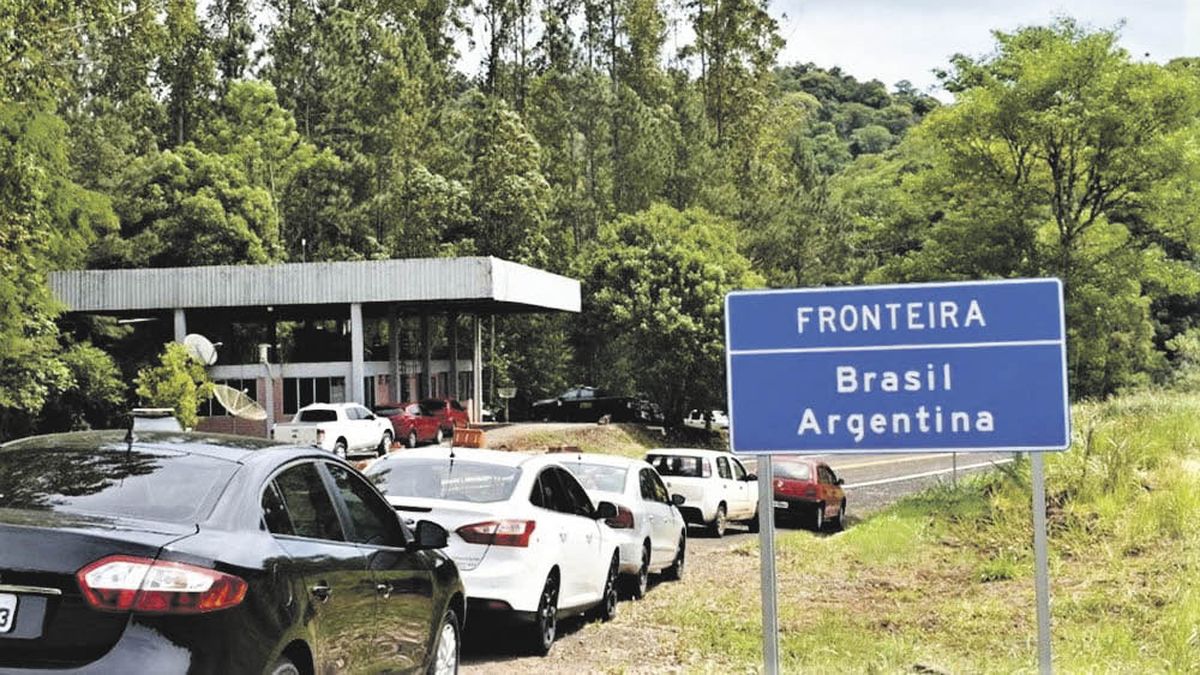In the middle of a sustained smuggling growthin the Chamber of Deputies A bill that proposes the creation of a Special legal regime for SMEs based on border areaswith him objective of reducing tax and exchange asymmetries with neighboring countries and promoting regional integrationtaking as reference the “Free Land Border Lojas” of Brazil. Currently, there is a difference of 40% in products and the companies that opened branches in the border area due appreciation of the dollaraccording to a key mission official.
This initiative aims to eliminate the disadvantages of trade that exist in border areas. The project, presented by the Entrerriano deputy Gustavo Bordetseeks to declare of national interest the promotion and protection of MSMEs that operate in border areas. The text establishes tax benefits, the creation of a National Border Trade Council and a regulatory framework to encourage new investments.
The project, dating from 2018, has already passed through the SME commission and parliamentary sources stressed that he had “good acceptance”. Now, you have to go through Budget and Financealthough it is paralyzed since the beginning of the year, since the libertarian deputy José Luis Espertthat presides over this commission, does not call to deal with any opposition initiative. “The only ones who arrived were for location”they highlighted.
Border trade: they propose “cyclical” standards to reduce tax and exchange asymmetries
He National Border Trade Council (CNCF) will be formed multisectorially by a representative of the Tax and Customs Administration; of the National Secretariat of Entrepreneurs and SMEs of the Ministry of Production and Labor; from the province and municipality of the respective border area; of the security forces in charge of border control; of the National Directorate of Border Technical Affairs of the Ministry of Interior, Public Works and Housing; and of the guilds of the SME sector. They will be in charge of relieving statistics, monitoring economic variables of neighboring countries and proposing development policies for the region.
Although for this initiative the Federal Law No.12.723/2012 of Brazil that contemplates the “Free Land Border Lojas”in this case it would not be a free zone but would be governed by “cyclic” standards that grant benefits such as incentives to reduce existing tax, exchange and commercial asymmetries with neighboring countries.
“The fiscal impact would be positive, since it would be increasing in the manufacturing and distributors of Argentina that are generally in the central strip of the country, for the greatest demand in borders,” he said Fabián Hryniewiczdirector of the Border Commission and illegality of Camein dialogue with Scope. This positive impact would be explained by the drip, but also “would force companies to regularize the employment situation of workerssince to benefit from these benefits, trade must meet all legal safeguards. “
Regarding the exchange asymmetriesHryniewicz said that they would be compensated by the removal of taxes or by special measures, for which an “advisory council” should be established to evaluate the causes as well as the initiatives to be taken.
It should be noted that local monetary policy is volatile and in times of exchange rate appreciation or strong devaluations, Argentina is more or less benefited in the border area. “Now you have a 40% disadvantage with other borders and low purchasing power, which have a negative impact and the people in the area are going to buy products from other countries”he explained Alejandro Garzón MacedaDirector of Missions Consumer Defense.
In that line, the official recalled that “Two years ago the Argentine wholesalers sold by Pallets. It is a permanent rise and low. The companies that opened branches near the border (for mass sales) then closed them when consumption fell”. As an example of the risks, Hryniewicz exhibited some Homemade hamburgers of brand “Guarani” that they smuggled towards the Peripheral neighborhoods of the city of Formosa and did not respect the cold or health control chain. “They are transported in canoes, hopefully in a conservative”he stressed.
Border Trade: Promote exemptions for minimal amounts
Among the central points of the initiative, it is expected that the purchases of products in border shops are exempt from VAT Until an equivalent amount of U $ S500 per person and per month for foreign visitorsand of U $ S1,000 for national buyers. According to the foundation, The objective is to balance prices in the face of macroeconomic differences in bordering countries and avoid the loss of competitiveness of local businesses.
As for the scope, the norm enables The commercialization of food, drinks, footwear, clothing, crafts, appliances and materialsamong other lawful products, but expressly prohibits the sale of armaments, explosives, drugs and all well restricted by national laws.
In the foundations, Bordet warned that border cities share social, cultural and economic ties that transcend national limits, but that The absence of a special regime “exposes MSMEs to the consequences of macroeconomic asymmetries and exchange”. In that sense, the legislator said that the project seeks to “guarantee the economic and social development of the border communities, under a vision of regional sustainability and integration.”
Source: Ambito




